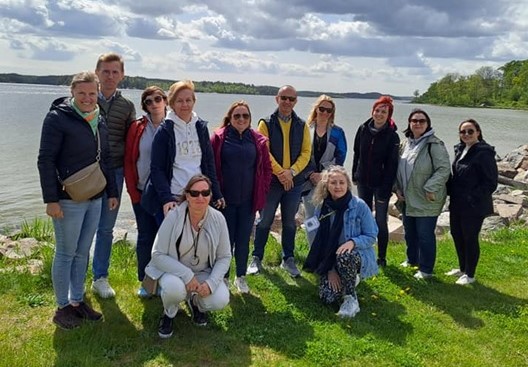
Three delegates from the Secretariat for Catholic Education (SfCE) participated in a Erasmus+KA220 project titled INDI (INclusion and DIversity) to explore diversity in schools.
Schools from Sweden, Belgium, Slovenia, Cyprus, and Malta (SfCE and St Albert the Great College – Kindergarten) participated in this project. All participating schools share a common vision: to provide education of the highest quality in early years and to address inclusion challenges for children with different educational needs and those from different cultural backgrounds.
The aim of the project INDI is to identify, test, and implement innovative methods and practices in the context of socio-economic and cultural diversity. It also focuses on improving strategies for parental involvement, and to enhance inclusion of all interested parties, specifically children, professionals, families and communities.
The visit to Sweden was the third exchange out of five. Each exchange offers activities for teaching and training. As part of this project, the SfCE finished a digital book titled It’s OK to be me! with the aim to increase awareness about diversity among young children. The book celebrates the fact that every person is unique and different from others.
The Upplands Bro Municipality in Stockholm hosted the visit. There were four visits in different kindergartens where the curriculum was based on three principles: play, learn and care. This is centred on project-based learning, in accordance with the Reggio Emilia Approach.
In this type of pedagogy, children are considered individuals with a strong potential to develop, have rights, and learn through the hundreds of languages of humankind, enabling them to grow by relating to and connecting with others. Schools following this pedagogy are also managed in accordance with these principles and the philosophy that what can be done indoors can also take place outdoors. This can be in forests next to schools, the school garden or play area, or other places that may be used as a place where children can interact with each other and nature. Visual aids can be found inside and outside these schools, as these are universal languages used to communicate with everyone, including children from different educational and cultural backgrounds. Above all, these aids expose children to concepts of spoken and visual language, as well as sign language.
The Maltese delegates also visited the Härnevi school. This school caters for students who have recently migrated to Sweden. Students are grouped according to language ability, not age, and are taught their native language, as well as Swedish and English.
A new concept is that of open preschools, where children who do not attend preschool can go and participate in educational activities with their parents. The day’s programme is designed in accordance with the needs of those attending that day and involves singing, crafts and play. Parents are taught parental skills, behavioural management and how to bond with their children. Children are exposed to activities with the aim of improving their language skills through storytelling and phonological awareness. These open preschools work together with child healthcare services, midwives and social services.
This visit provided an opportunity for the Secretariat for Catholic Education to see diversity and inclusion in practice, and to reflect on and improve local educational practices regarding these topics.





